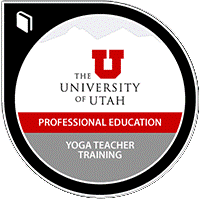Basic Mediation Training

- This course has been qualified by the Utah Court and meets the educational requirement to be listed as a mediator on the Utah Court Roster of Mediators (Basic Court Roster)
- The program teaches crucial conflict resolution skills for anyone seeking to be better in resolving their own and others’ disputes.
- Earn a valuable credential backed by the prestige of the University of Utah that will increase your chances of success in the competitive job market
- Complete in eight weeks
Mediation is both a career path and an invaluable personal skill. The knowledge gained and skills honed through this course empower you to improve your life, and the lives of others, as you bring the best practices of professional mediation to bear in your personal and professional worlds. The course is for anyone in the community, and is often pursued by social workers, therapists, educators, members of law enforcement, human resource professionals, managers, government employees, attorneys, and parents, to name just a few. If you want to learn how to find a way to move from conflict to common ground, Basic Mediation Training is the place to begin your journey.
Program Outcomes
- Teaches crucial conflict resolution skills for anyone seeking to be better in resolving their own and others’ disputes.
- Satisfy the educational requirement to be approved as a mediator on the Utah Court’s Mediation Roster.
Who Should Participate
This training program is for everyone! You do not need to have a law degree to be a rostered mediator or learn mediation skills. Our program is designed for:
- Everyone and anyone who deals with conflict or who wants to be better at dealing with conflict in their personal and professional lives.
- People who are interested in becoming professional mediators or exploring that possibility.
- Lawyers and law students who are seeking to achieve roster status are also welcome and encouraged to take this training.
Course Information
Class Format: Online with class meetings live via Zoom once per week.
Enrollment Options: This course is offered each Fall and Spring semester as LAWC 651. It may be offered during the Summer semester depending on demand.
Completion Time: 8 weeks
How to Enroll: Register on our website for the course, LAWC 651, when registration for the term is available. If the class is full, you can add yourself to the waiting list or give us a call at (801) 585-9963 for assistance.
Drop/Refund Policy: No drops or refunds will be provided after 3 business days prior to the first meeting of the class.
Tuition for this course is $1,260 and is due at the beginning of the course. Textbooks are additional costs. Tuition listed above subject to change without advance notice.
- Financial aid is not available for non-credit classes. Students are encouraged to inquire with their employers to determine if tuition assistance is available.
- This course is not eligible for faculty/staff tuition reduction or emeritus benefits.
- No drops or refunds will be provided after 3 business days prior to the first meeting of the class.
Why choose the University of Utah?
We understand that you have a choice when it comes to taking professional development courses and we work hard to earn your trust with each and every class!
By selecting the University of Utah, you’ll enjoy the following benefits whether you’re coming to us as someone new to the job market, a career changer, a seasoned professional or a lifelong learner.
Resume Power - benefit from the University of Utah reputation for credibility and quality. Choosing the University of Utah for your certificate program makes a clear statement about your commitment to excellence.
Instructor Excellence - learn from the same high-quality faculty that teach in our degree programs.
The Power of the U Network – students have access to a valuable University of Utah peer and faculty network.
Programs that Fit Your Schedule – most of our certificates offer convenient online or evening classes that offer a schedule that works around you. Go to class whenever and wherever you want.
Certificate Completion Requirements
- Students will be required to fulfill the same expectations and requirements as matriculated students including exams, projects and participation.
- Certificate students will receive an “S-Satisfactory” or “U-Unsatisfactory” assessment for each class. “S-Satisfactory” will indicate that the student has met the standards for at least a C-.
- Students must receive an “S-Satisfactory" grade in all classes for successful completion.
How is my accomplishment recognized?
For students earning an “S-Satisfactory" grade, the completed certificate will appear on University of Utah official transcripts.
Students will also be awarded a University of Utah digital credential (badge) that can be shared on social media sites and used with other professional resources. Digital badges are embedded with metadata that validate the skills demonstrated and other requirements for earning the badge.Digital Credentials / Badges

 Follow the link on the badge to the left to find out what metadata is behind the Yoga Teacher Training Certificate or Caring for the Aging Population Micro-certificate badge. This is an example of the type of information you’ll find behind all our academic noncredit certificates.
Follow the link on the badge to the left to find out what metadata is behind the Yoga Teacher Training Certificate or Caring for the Aging Population Micro-certificate badge. This is an example of the type of information you’ll find behind all our academic noncredit certificates.
Find out more about Digital Badges at the University of Utah »
Are there exams? Am I graded?
There is a capstone project due at the conclusion of the class, as well as a meeting with the instructor. This course is graded on a “Satisfactory” or “Unsatisfactory” basis. In order to successfully pass the class students must achieve a “Satisfactory” grade.
Can I apply these classes to a degree?
This course, offered through Continuing Education, is noncredit and cannot be put toward a degree at any time. However, this course is also offered in a for-credit format to students in the Master of Legal Studies program.
Is this program eligible for financial aid?
Students enrolled in noncredit classes are considered “non-degree seeking”, a status that is not eligible for federal student loan programs.
Why can’t I drop the class for a refund closer to the class start date?
Unfortunately, these classes are very popular and limited space is available each semester. Because attendance at all class meetings is required in order to fulfill the education requirement for getting on the court roster, we can’t accommodate drop requests submitted to us any later than 3 business days before the class starts. This time ensures we are able to reach out to our waiting list and offer the seat to someone else who can attend the full class.
What is the weekly average time commitment?
You can expect to spend 2-3 hours per week outside of class meetings on course work.
What other requirements are there to be placed on the court roster?
Completing this training course fulfills the educational requirement for becoming a court rostered mediator. To be placed on the roster students must also complete a short practicum and a state-administered ethics exam. More information on how to complete these requirements is given during the training and can also be found on the Utah State Courts website.
Additionally, the court has a separate roster for individuals wanting to mediate domestic (family) disputes. This is a more advanced roster, and individuals need to first qualify for the basic roster. If you have already qualified for the basic roster, check out our Domestic Mediation Training program!
Do you help students get supervised hours?
No, we do not currently assist students in acquiring the required supervised mediation hours.
Noncredit Certificates Program
Contact Noncredit Certificates Program for questions about course completion, registration or payment issues.
Taylor Bond
Certificates and Contracts Coordinator
certificates@utah.edu
(801) 581-7912
S. J. Quinney College of Law
Contact the College of Law for questions about class experience, qualifications for placement on the court roster, future class offerings, or any class-specific information.
Stephanie Peterson
Director of Education
Stephanie.Peterson@law.utah.edu
Upcoming Classes
| Class Title | Next Start Date |
|---|---|
| 40-Hour Basic Mediation Training | 06/10/2026 |

